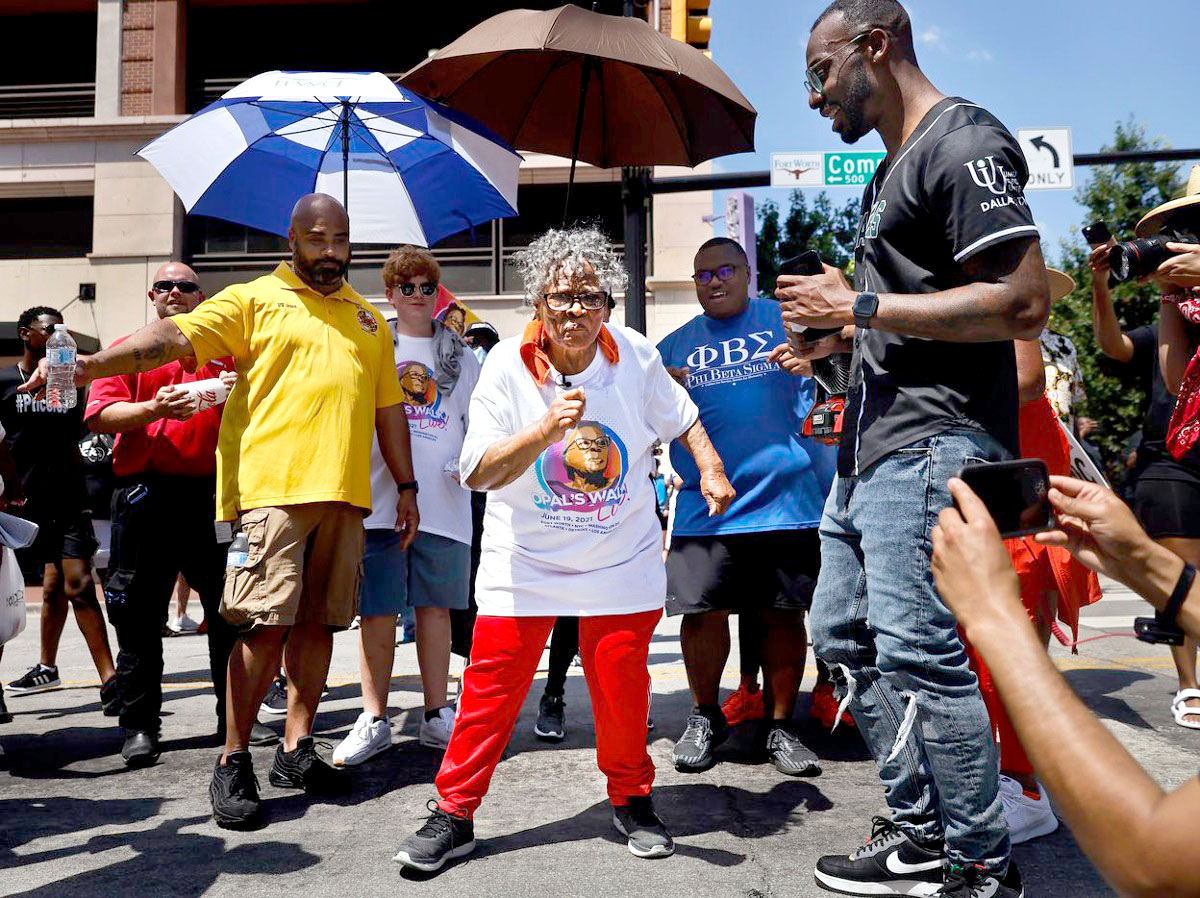
On June 19, 1865, troops took control of Galveston, Texas, to ensure the freedom of enslaved people. Juneteenth commemorates the end of slavery in the United States after the Civil War, two and a half years after the Emancipation Proclamation.
African American communities have celebrated Juneteenth for more than 150 years and activists actively pushed for federal and state recognition. The federal government acknowledged Juneteenth as a national holiday on June 17, 2021.
In 2016, Opal Lee, an 89-year-old Juneteenth activist, began her campaign for Juneteenth to be recognized as a national holiday by walking from Fort Worth, Texas, to Washington, D.C. Lee reflected on Juneteenth: “I believe Juneteenth can be a unifier because it recognizes that slaves didn’t free themselves and that they had help, from Quakers along the Underground Railroad, abolitionists both black and white, like Frederick Douglass and William Lloyd Garrison, soldiers and many others who gave their lives for the freedom of the enslaved.”
As LMU commemorates Juneteenth with a university holiday on Friday, June 17, we reflect on the painful history of slavery in the United States, its impact on society today, the importance of speaking up against injustice, the work that has already been done, and the work that needs to continue.
Events that celebrate Juneteenth in Los Angeles:
June 18, 6 p.m. Eat See Hear: Juneteenth: celebration featuring “42”
June 19, 10 a.m. Juneteenth Art x Culture Festival
June 19, 4 p.m. Juneteenth: A Global Celebration of Freedom
DEI Buzz
- Visit LMU’s new LGBTQIA+ hub.
- We invite LMU students, faculty, staff, and alumni to submit an artistic work to showcase here for LGBTQIA+ Pride.



